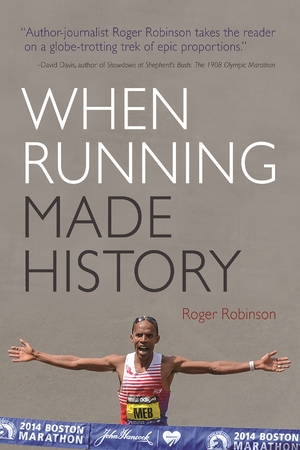"An impressive work of research and analysis, this Kiviat biography illuminates a life that mattered. Scholars will encounter a seminal contribution to the literature on ethnicity in sport."—Journal of American History
"Katchen has created a microcosm of twentieth-century track history. [His] exploration of the immigrant experience, especially the vehicles of assimilation, has universal appeal."—Pamela Cooper, author of The American Marathon
"Alan Katchen did an outstanding job telling the story of Abel Kiviat’s great track career within the context of the track world of 1910 until his death in 1991. The head-to-head competition we had in Kiviat’s time is needed today to revive track and field in the United States. All Olympic fans will enjoy reading this book."—Mel Rosen, Head Coach, 1992 U.S. Men’s Olympic Track and Field Team
Description
Abel Kiviat (1892-1991) was one of track and field’s legendary personalities, a world record-holder and Olympic medalist in the metric mile. A teenage prodigy, he defeated Hall of Fame runners before his twentieth birthday. Alan S. Katchen brings Kiviat’s fascinating story to life and re-creates a lost world, when track and field was at the height of its popularity and occupying a central place in America’s sporting world.
The oldest of seven children of Moishe and Zelda Kiviat, Jewish immigrants from Poland, Abel competed as “the Hebrew runner” for New York’s famed Irish-American Athletic Club and was elected its captain. Katchen’s engaging biography centers Abel Kiviat’s life and his sport firmly in the context of American social history. As a quintessential New Yorker, Kiviat embodies the urban and ethnic roots of American track. From his first schoolboy competitions on city playgrounds, to his world records at Madison Square Garden, to his pioneering role as track’s press steward in the age of emerging media, Kiviat’s life reveals how his sport was shaped by the culture of the emerging metropolis. New York City is not only the setting for these developments but also a subject of the book. The narration is enriched with brief portraits of celebrated track athletes including Kiviat’s Olympic roommate, Jim Thorpe. In addition, Katchen offers a detailed account of the I-AAC’s evolution, including its close ties to the Tammany Hall political machine, and sheds light on the rapid modernization of the sport and the ways it provided a vehicle for the assimilation of working-class, immigrant athletes. Finally, Katchen explores the social origins of the ideology of amateurism and its devastating impact on Kiviat’s career.
Kiviat died at ninety-nine, just months short of carrying the torch for the opening ceremonies of the Barcelona Olympics. Abel Kiviat, National Champion pays tribute to a remarkable athlete and the sport during its most dynamic and celebrated era.
About the Author
Alan S. Katchen has taught the history of education at the University of California at Santa Barbara and at Howard University. He served for more than twenty years as a regional director of the Anti-Defamation League. Since his retirement from ADL, he has been an adjunct professor of history at Capital University in Columbus, Ohio, and was awarded the J. Kenneth Doherty Memorial Fellowship of USA Track and Field for research on Abel Kiviat and his world.
Related Interest
July 2009




